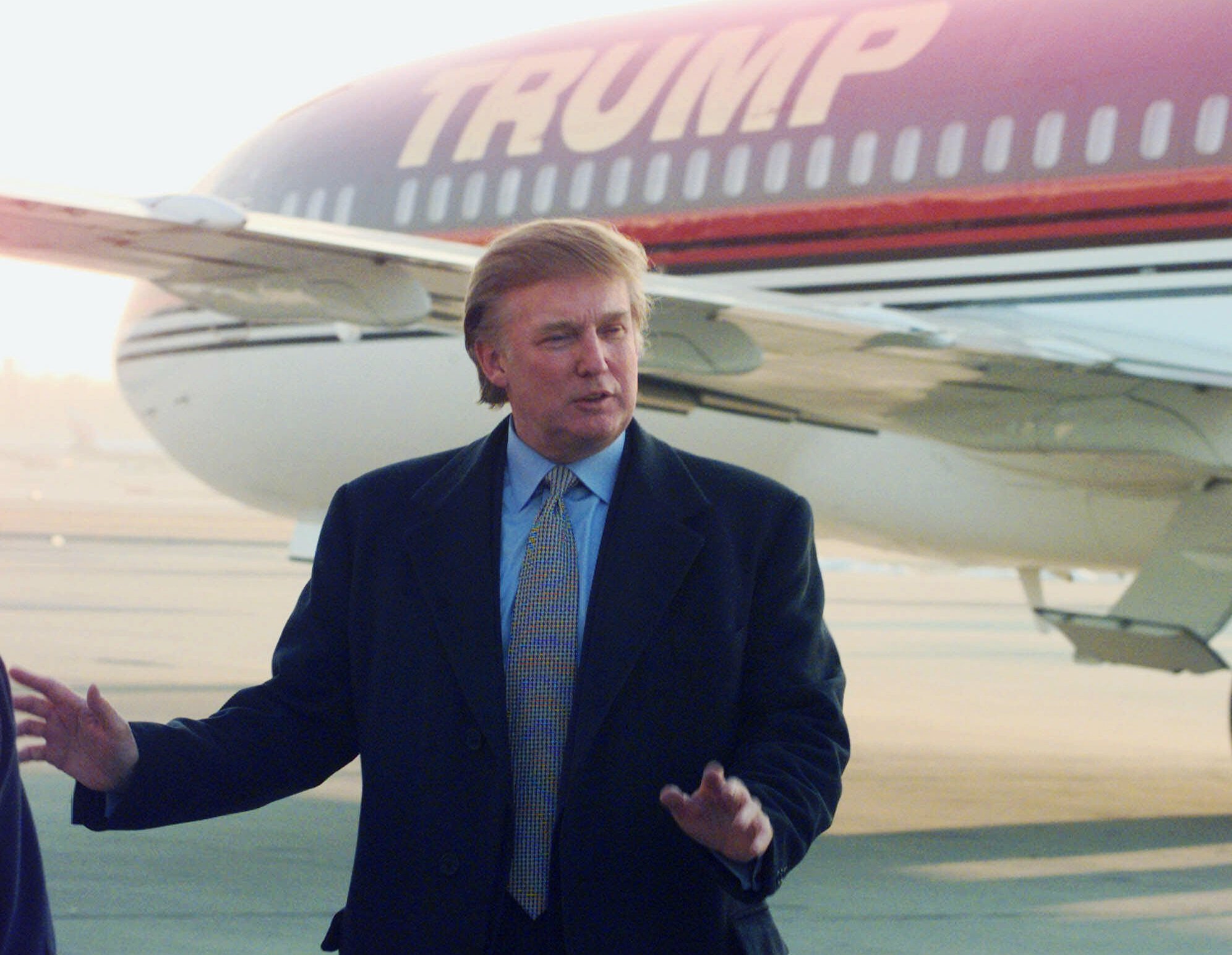In 2006, when a judge ordered Donald Trump's casino operation to hand over several years' worth of emails, the answer surprised him: The Trump Organization routinely erased emails and had no records from 1996 to 2001. The defendants in a case that Trump brought said this amounted to destruction of evidence, a charge never resolved.
At that time, a Trump IT director testified that until 2001, executives in Trump Tower relied on personal email accounts using dial-up Internet services, despite the fact that Trump had launched a high-speed Internet provider in 1998 and announced he would wire his whole building with it. Another said Trump had no routine process for preserving emails before 2005.
Judge Jeffrey Streitfeld was stunned. “He has a house up in Palm Beach County listed for $125 million, but he doesn’t keep emails. That’s a tough one,” he said, according to transcripts obtained by USA TODAY. “If somebody starts to put forth as a fact something that doesn’t make any sense to me and causes me to have a concern about their credibility in the discovery process, that's not a good direction to go, and I am really having a hard time with this.”
Now, a decade later, Trump regularly hammers Hillary Clinton, the presumptive Democratic presidential nominee, for using her own email server while she was secretary of State and deleting emails from that server that she deemed to be private. In a war of tweets with Clinton a week ago, Trump wrote, “And where are your 33,000 emails that you deleted?” On the CBS News program Face the Nation earlier this month, Trump said, "What she did is a criminal situation. She wasn't supposed to do that with the server and the emails."
A USA TODAY Network analysis found that Trump has been involved in more than 3,500 lawsuits over the past three decades. In this case, while Trump was not accused of doing anything illegal at the time and he clearly was not a public official, there are, nonetheless, fascinating parallels between the events of 2006 and the current campaign.
The Trump campaign and his lawyers have not responded to requests for comment on this story.
The preservation of email was a central point of contention in the suit filed in 2004 by Trump's publicly traded casino company, called Trump Hotels and Casino Resorts, against a former employee, Richard Fields. The gist of the Trump company's suit in a Broward County, Fla., court was that while he was working with Trump, Fields had developed the idea of working with the Seminole Tribe in Florida to build a casino, then told Trump the idea wasn’t going to fly. Fields then left Trump’s employ at the end of the 1990s and struck the same deal with other partners.
Trump sued Fields and the companies he had ended up working with on a Seminole casino, arguing that Trump Hotels should be entitled to all profits the casinos produced, which were expected at the time to be more than $1 billion over 10 years.
The companies Trump sued argued that if it was true that Trump Hotels had been pursuing a similar deal with the tribe, there would be emails and other records documenting their discussions. The judge agreed and ordered Trump Hotels to hand over emails, financial documents, executive meeting calendars and so forth.
In a March 2006 hearing, the Trump company's lawyer, Robert Borrello, said Trump didn’t use email himself and his company didn’t retain emails. “My understanding from speaking to my client is that there are no emails,” Borrello said, according to a transcript obtained by USA TODAY. “They don’t keep emails from the time period from ’96 until within the last couple of years, when the organization instituted retention procedures for keeping emails electronically.”
Streitfeld, who has since retired, told USA TODAY he remembers the case. “I was a bit incredulous that an organization of that significance doesn’t do email,” Streitfeld said. “I had heard a number of things in 24 years on the bench, but that stuck in my mind.”
Trump certainly had access to high-tech communications. In 1998, he created a tech venture called Trump New Media, and its first project was “to wire his luxury high-rise Trump Tower for blazing-fast Internet access and video-on-demand service,” the New York Daily News reported. A publication called Network World reported in October 1998 on the efforts of Trump’s Louisiana-based Internet service provider to provide “bursting” capability for “business residents at Trump Towers in New York” to be able to “grab extra bandwidth from time to time.” The article quoted Trump New Media executive Harry Geruldsen as saying the company planned to offer these services to businesses nationwide.
But Trump’s own company was apparently not using it.
In 1996, some Trump executives set up email accounts “using dial-up connections with various email providers such as AOL, Compuserve,” said Nikos Vroulis, the director of networks and systems for Trump’s casino operations in a March 2006 affidavit. “In the late 1990s, (1998-99 approximately), we switched dial-up accounts to different providers. In 2001 we acquired a server … and gradually moved employees away from using their dial-ups.” Vroulis added that “it was not until the summer of 2003 that we began to journal and save emails on the server.”
Before that, Trump’s casino company destroyed old computers and emails that might have been stored on them. “There was no uniform procedure for migration of data from an obsolete work station to a replacement work station,” Vroulis said.
Trumps’s companies had no document retention policy, witnesses testified. “Every year everything was just wiped out and deleted from pretty much everybody’s computers,” said Bob Pickus, general counsel of the casino unit at the time, according to court records.
Email retention policies were still evolving over the years covered by the Trump’s dealing with the Seminoles. At the time, companies had very little guidance on what electronic records they were supposed to keep, said Rae Cogar, a lawyer who used to chair the American Bar Association committee on electronic evidence. Cogar said when Congress passed the 2002 law known as Sarbanes-Oxley to combat securities fraud, "that was the start when people really started looking at how they were handling their information and electronic records."
As the Trump Hotels court case dragged on, the defendants asked the judge to enforce sanctions against Trump for destroying evidence. Trump’s company failed to preserve emails and “has been regularly destroying data and evidence located on its computer, both before and after this case was filed,” the companies charged in a May 2007 motion. One Trump executive had his computer replaced in 2005, after Trump filed his complaint against Fields and the other casino developers, and “there were emails on the hard drive of his old computers that were not migrated to his new computer or otherwise preserved,” the defendants argued.
But the case was settled before the judge ruled on whether Trump's company had destroyed evidence.


